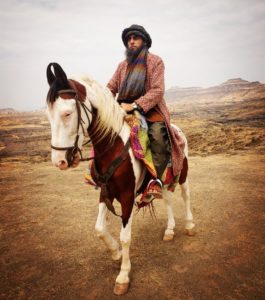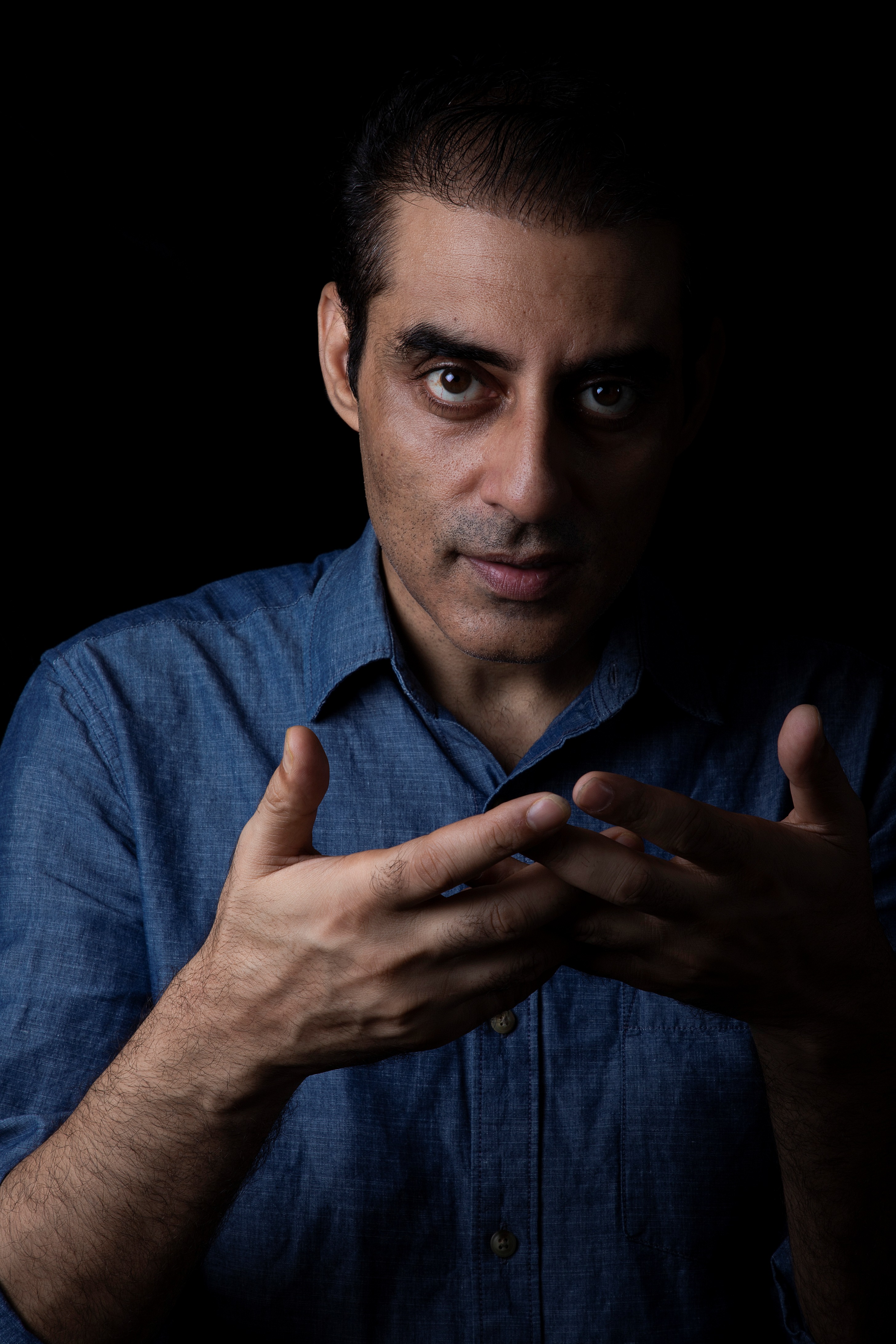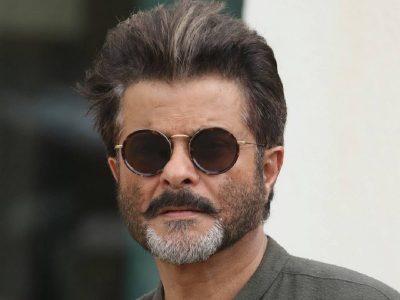After his role in Kesari, Ashwath Bhatt will be seen in Deepa Mehta’s Netflix series Leila based on a novel by Prayaag Akbar
NSD Alumnus Ashwath Bhatt is known for his realistic performances in films like Haider, Raazi, and Kesari. Originally hailing from Kashmir, his family had to leave the valley in the early 1990s owing to the rise of insurgency.
In Delhi, he found solace in theatre. After spending a few years doing amateur theatre, he secured admission in National School of Drama (NSD) where his journey as a professional actor started.
After winning laurels for his work in both Raazi and Kesari, Ashwath will next be seen in Deepa Mehta’s upcoming series Leila, based on a novel by Prayaag Akbar, which is set to premiere on June 14.
In this interview, Ashwath talks about Leila and other upcoming projects, his acting process, and his everlasting love for theatre.
Excerpts:
What is Netflix’s upcoming series Leila all about? Also, tell us about your role in it.
Leila is a series by Deepa Mehta that’s set in a futuristic world, circa 2040. It offers an interesting blend of what’s happening in the country right now and what happened in human history during the Second World War in Europe. My character in Leila is called Dixit. He is the chief engineer of a major project running within Leila’s dystopian world.
You played the menacing character of Gul Badshah Khan in Kesari. How did you prepare for it?
It was something I hadn’t done before. Since it was a commercial film, the challenge was even bigger — given the scale. Fortunately, the director’s vision was very clear right from the onset. He didn’t want the story to lose its earthy touch.
As part of the preparation, I had to learn horse riding and take Pashto lessons. As an actor, I feel that it is very important to be able to grasp the context and so it was important to understand the British history and the Afghan-British rivalry prevalent during the period.

Understanding all these things is very important in order to truly appreciate the relevance of the dialogues. At times, we were shooting in 45 degrees heat with heavy costumes and armor suited for a Siberian climate. But we would forget all our troubles the moment camera began to roll. The reality would hit us again only after the director called out ‘cut’ (laughs).
Some critics accused Kesari of promoting Islamophobia and dehumanising the Muslims vis-à-vis the Sikhs. What are your thoughts on this?
Everything has two sides. There is a fanatic in every religion. We recently saw what happened in New Zealand. We have heard about lynching incidents in our country as well.
Also, what the Buddhist extremists did in Myanmar is well documented. Unfortunately, that’s the kind of world we are living in today. Now, as far as Kesari is concerned, the character of one of the tribal chiefs Khan Masood has very distinct humanising elements.
To understand this better, you will have to look at the film’s screenplay which never tries to judge these characters. The thing is that media often tends to pick out certain things. While there is talk about the negativity of the Afghan Mullah’s character, there is no acknowledgement about the redeeming qualities of Khan Masood. I believe sometimes critics tend to judge things on face value and somewhere the nuances get missed.
In comparison to your villainous turn in Kesari, your character of Mehboob in Raazi mostly had shades of grey. What brief was given to you by Meghna Gulzar?
Meghna Gulzar is a very sensitive director. She is always very sure about what she wants from her actors. So, there is no compromise. She told me right at the onset that she doesn’t want Mehboob to get any attention at all in the beginning. That it should not give the viewer any idea where his character would head as the plot progresses.
The idea was to hide the character’s tenacity and perseverance. In fact, there is a scene in which Mehboob gives a speech right after Abdul is killed by Sehmat. While it was eventually edited out from the film, it did provide a background to Mehboob’s character — that he was the backbone of Brigadier Syed’s family. He had balanced the household after the early death of his mother and was like a firefighter for the family. And had Sehmat not killed him, he would have definitely succeeded in exposing her cover in a day or two.
These days a lot of actors tend to get typecast. What are your thoughts on typecasting?
I have started this hashtag called #saynototypecasting. The point is that if an actor has done a good job in a series or a film, it doesn’t mean that you will keep on offering the same kind of role again and again to that person.
I feel that audiences also want to see a good actor in different roles. They want to see the versatility of a good actor. When I talk to the casting people, they say that the creative heads have a problem. Then they say that the directors have a problem. I want to openly tell directors, creative heads or whosoever is the decision-making body — to please stop casting actors in same roles again and again.
Like a lot of actors, you too started your career with theatre. Tell us about your acting journey.
Coming from Kashmir, I have always felt that theatre has been therapeutic for me. It happened at the right time in my life. I was at the Delhi University when I started doing theatre. I was very active in Delhi’s amateur theatre circuit during which I got associated with the Sri Ram Centre.
Then I graduated from NSD in 2001 and then in 2003, I graduated from London Academy of Music and Dramatic Art in Acting. While I got to learn a lot during those years of training, I believe that I am learning till date.
An actor dies the day he/she starts thinking that he/she has learnt everything. Every artist must be able to appreciate that every day is a new day and every experience is a new experience. Humility is the most important thing for every artist. Any artist who isn’t grounded isn’t an artist in my eyes.
What are your upcoming projects other than Leila?
Other than Leila, there is 99 Songs which is produced by A.R. Rahman. Vishwesh Krishnamoorthy is the director. I am playing a politician for the very first time. It’s a very interesting part. Then I am doing a series with ZEE5. This year I will also be doing a lot of theatre.




